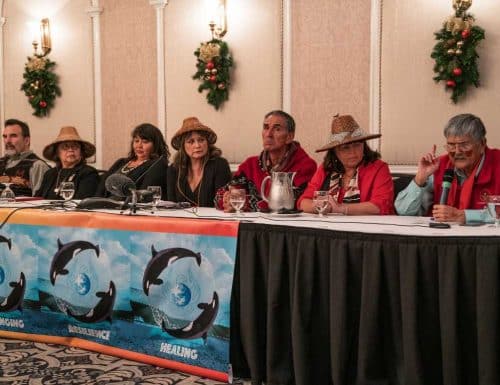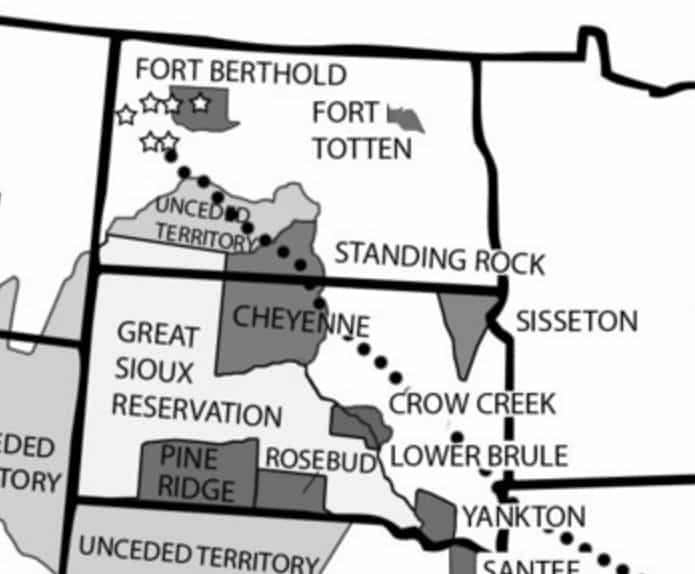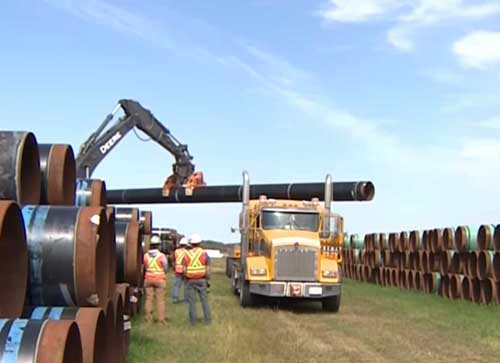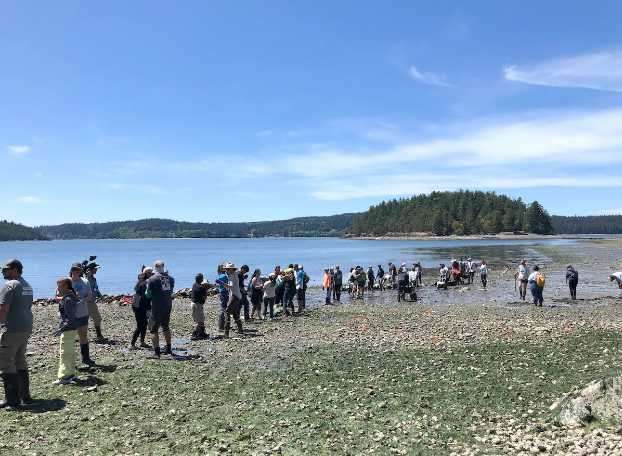
Seattle — A landmark court decision issued Thursday casts doubt on whether Kinder Morgan’s troubled and controversial Trans Mountain pipeline project can go forward. United States Coast Salish Tribes — including the Swinomish Indian Tribal Community, Tulalip Tribes, Lummi Nation, and Suquamish Tribe — are celebrating the decision, which finds that the permits for the pipeline were issued illegally.
“Over the last 100 years, our most sacred site, the Salish Sea, has been deeply impacted by our pollution-based economy,” said Swinomish Tribal Chair (and Co-Chair of the Coast Salish Gathering) Brian Cladoosby. “The place that we’re living now is where we have been since time immemorial. All of our roots go deep and our bloodlines are woven thru out the Salish Sea. Coast Salish and all native peoples are what you call a place-based society. What that means is, we just can’t pick up and move to Ottawa or Montana or Texas. We are where we are.”
In 2014, the four U.S. Tribes intervened in the Canadian National Energy Board proceeding considering whether to issue permits for the pipeline. They joined their Canadian First Nation partners in vigorously opposing the project due to its impacts on treaty rights, livelihoods, and culture. The project would move close to 900,000 barrels of toxic tar sands crude adjacent the sensitive waters of the Salish Sea, where much of it would be shipped through shared U.S. and Canadian marine waters.
The almost seven-fold increase in oil tankers would have triggered a seemingly inevitable increase in groundings, accidents, incidents, leaks and oil spills. Experts agree that a serious oil spill in the Salish Sea would devastate an already-stressed marine environment and likely lead to collapses in the remaining salmon stocks and further contamination of shellfish beds, wiping out Indigenous fishing rights.
In today’s decision, the Federal Court of Appeals rejected the Canadian government’s approval on two grounds. First, it held that the Canadian government failed to adequately consult with and address the concerns of First Nations who were opposed to the project. Second, the Court faulted the government for ignoring the impacts of marine vessel traffic, which included undisputed and grave threats to already-stressed resident orcas. As the Court found, “Project-related tankers carry the risk of significant, if not catastrophic, adverse environmental and socio-economic effects should a spill occur.” These are precisely the risks brought to the NEB’s attention by the U.S. Tribes.
The court case was brought by a coalition of Canadian First Nations, cities, and conservation organizations. The U.S. tribes were not a party to the court case.








